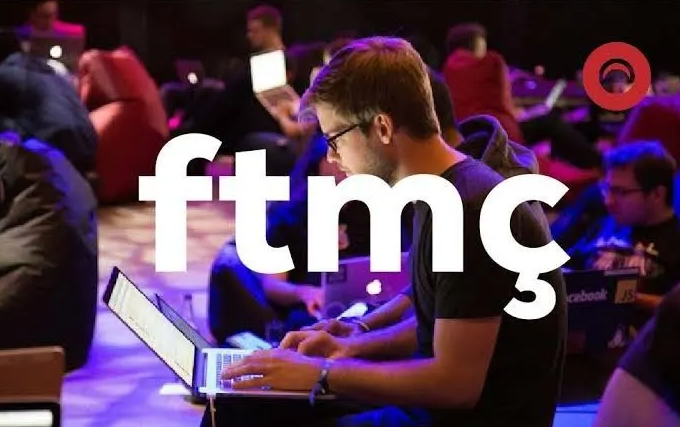It was a rainy afternoon in Istanbul when Ayşe, a young engineer with a passion for innovation, found herself stuck in traffic. As she gazed out of the window at the bustling city around her, she couldn’t help but feel frustrated by the inefficiencies she saw everywhere—overcrowded buses, congested roads, and the slow pace of technological adoption in her beloved city. But then, amidst the chaos, an idea began to take shape in her mind. What if there was a way to streamline these systems, to create a solution that could transform the way people and goods moved around the city? That was the moment when FTMÇ was born.
The Vision Behind FTMÇ
FTMÇ, an acronym that stands for “Fast, Tech-Driven Mobility Çözümleri” (Solutions), is a groundbreaking initiative aimed at revolutionizing urban mobility in Turkey and beyond. The concept behind FTMÇ is simple yet profound: to develop an integrated system that combines cutting-edge technology with practical, user-friendly solutions to improve the efficiency and sustainability of transportation networks.
FTMÇ isn’t just about moving people from point A to point B. It’s about creating a holistic ecosystem where mobility is seamless, accessible, and environmentally friendly. From smart buses that adjust their routes based on real-time data to electric vehicles that charge themselves using solar power, FTMÇ aims to be a game-changer in the world of transportation.
The Core Features of FTMÇ
Smart Mobility Solutions
At the heart of FTMÇ is its smart mobility system, which leverages artificial intelligence, machine learning, and big data analytics to optimize transportation networks. The system is designed to analyze traffic patterns, predict demand, and allocate resources in real time, ensuring that users can travel more efficiently and with less environmental impact.
For example, FTMÇ’s smart buses are equipped with sensors and GPS technology that allow them to communicate with one another and with central traffic management systems. This enables the buses to adjust their routes dynamically, avoiding traffic jams and reducing travel time for passengers. The system also includes a user-friendly app that provides real-time information on bus locations, arrival times, and seat availability, making public transportation more accessible and convenient for everyone.
Sustainable and Green Technologies
One of the key pillars of FTMÇ is its commitment to sustainability. Recognizing the urgent need to reduce carbon emissions and combat climate change, FTMÇ integrates green technologies into its mobility solutions. This includes the use of electric vehicles (EVs) powered by renewable energy sources, such as solar and wind power.
FTMÇ’s electric vehicle fleet is designed with efficiency in mind. The vehicles are lightweight, aerodynamic, and equipped with advanced battery technology that maximizes range while minimizing charging time. In addition, FTMÇ has partnered with local governments to install solar-powered charging stations throughout the city, ensuring that EVs can be charged quickly and conveniently, even in remote areas.
The Impact of FTMÇ
Transforming Urban Mobility in Istanbul
Since its inception, FTMÇ has had a significant impact on urban mobility in Istanbul. The city, known for its heavy traffic and sprawling urban landscape, has long struggled with transportation inefficiencies. However, with the introduction of FTMÇ, residents have seen marked improvements in their daily commutes.
The smart bus system has reduced travel times by up to 30%, allowing commuters to spend less time on the road and more time doing the things they love. The integration of electric vehicles has also contributed to a noticeable decrease in air pollution, improving the overall quality of life in the city. Moreover, FTMÇ’s focus on accessibility has made public transportation more inclusive, with special provisions for people with disabilities and the elderly.
Expanding Beyond Istanbul
Building on its success in Istanbul, FTMÇ has set its sights on expanding to other cities in Turkey and eventually to international markets. The flexibility and scalability of the FTMÇ system make it well-suited for deployment in a wide range of urban environments, from densely populated megacities to smaller, more rural communities.
FTMÇ’s expansion plans include collaborations with local governments, private companies, and international organizations to bring its innovative mobility solutions to new regions. By doing so, FTMÇ aims to create a global network of smart, sustainable cities that prioritize the well-being of their residents and the environment.
Challenges and Opportunities
Despite its many successes, FTMÇ has faced its share of challenges. One of the primary obstacles has been the resistance to change among some stakeholders. Implementing a new, tech-driven mobility system requires significant investment and a willingness to adapt to new ways of thinking. Convincing city planners, transportation authorities, and the public to embrace FTMÇ’s vision has been a complex and ongoing process.
Additionally, the development and deployment of FTMÇ’s technologies have required extensive research and testing. Ensuring that the system is reliable, secure, and scalable has been a top priority for the FTMÇ team. However, these challenges have also presented opportunities for growth and innovation. By addressing these obstacles head-on, FTMÇ has been able to refine its solutions and emerge stronger and more resilient.
The Future of FTMÇ
Looking ahead, the future of FTMÇ is bright. With continued advancements in technology and growing awareness of the need for sustainable urban mobility solutions, FTMÇ is well-positioned to lead the way in this emerging field. The company’s long-term vision includes the development of autonomous vehicles, further integration of renewable energy sources, and the expansion of its services to include multimodal transportation options, such as bike-sharing and ride-hailing.
FTMÇ’s commitment to innovation, sustainability, and user-centric design ensures that it will continue to play a pivotal role in shaping the future of transportation. As the world grapples with the challenges of urbanization, climate change, and resource scarcity, FTMÇ offers a beacon of hope—demonstrating that with the right combination of technology and vision, it is possible to create a more efficient, equitable, and sustainable future for all.
Conclusion: The Legacy of FTMÇ
In conclusion, FTMÇ represents more than just a transportation solution—it embodies a new way of thinking about urban mobility and sustainability. From its humble beginnings as a spark of inspiration on a rainy day in Istanbul, FTMÇ has grown into a powerful force for change, transforming the way people move and live in cities around the world.
By focusing on efficiency, accessibility, and environmental stewardship, FTMÇ is setting a new standard for what urban mobility can and should be. As Ayşe continues to lead her team in pushing the boundaries of innovation, the legacy of FTMÇ will undoubtedly continue to inspire future generations of engineers, city planners, and citizens to dream big and work towards a better, more connected world.







